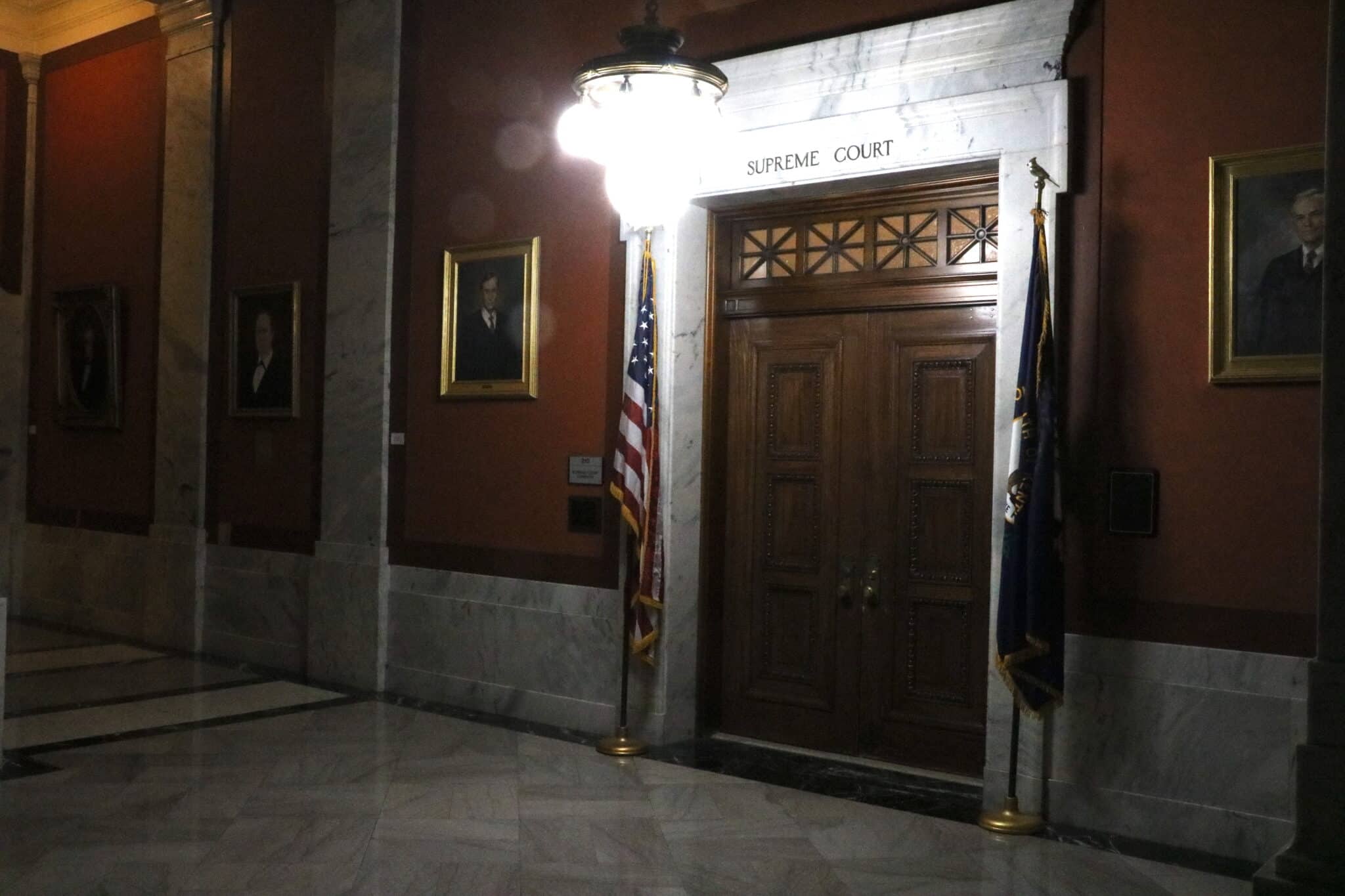FRANKFORT — Several Kentucky Supreme Court justices appeared to be skeptical of a new law that allows cases challenging the constitutionality of state laws and decisions to be randomly moved to any of Kentucky’s 120 counties.
The state’s highest court heard oral arguments Wednesday on the constitutionality of Senate Bill 126, which went into effect immediately after the GOP-dominated legislature voted to override a veto by Democratic Gov. Andy Beshear earlier this year.
- SUBSCRIBE: Sign up for our newsletters
The state’s “skill-based” gaming industry had challenged SB 126 in April in an effort to stop Republican Attorney General Daniel Cameron from randomly moving their case from the courtroom of Franklin Circuit Court Judge Phillip Shepherd, who has been the target of GOP criticism for past decisions. The industry had challenged a separate law banning such “skill-based” gaming machines often found in gas stations and convenience stores.

Instead of ruling whether SB 126 was constitutional himself, Shepherd in April asked the gaming and industry and the Attorney General’s office to petition the Supreme Court to take up the issue, which the court did so in June.
J. Guthrie True, an attorney for the gaming industry, told the justices the law was an “intolerable” overreach into the powers of the judicial branch that, if allowed to stand, could blur the “boundary” between the two branches of government.
“This statute removes any role from the court in a critical class of cases and adjudicating the issue of transfer — it leaves no room for the court to make a decision. It leaves no room for this court’s rulemaking authority,” True said.
Under SB 126, plaintiffs, defendants or the Attorney General as an intervening defendant in lawsuits challenging state laws and decisions, can file a motion to direct the clerk of the Kentucky Supreme Court to pick a new county circuit court at random to hear the case.
Within all those lofty ideals that we all work for every day is included access to the courts and access to justice.
– Kentucky Supreme Court Justice Michelle Keller
Theoretically, that could move a lawsuit filed in a Western Kentucky county hundreds of miles to a courtroom in Eastern Kentucky, something brought up in pointed criticism by Justice Michelle Keller.
“Within all those lofty ideals that we all work for every day is included access to the courts and access to justice,” Keller said, adding there are “some people that will be precluded when they have to travel from one end of the Commonwealth to the other.”
Kentucky Solicitor General Matthew Kuhn represented the Attorney General’s office in advocating for SB 126, echoing arguments previously made by the office that the law aimed to level the “playing field” for lawsuit participants concerned that a particular courtroom could be biased against them.
The Kentucky legislature in 2021 passed a law allowing a plaintiff to file a constitutional challenge in their home county, seeking to diminish the influence of Franklin Circuit Court in constitutional challenges. That court has traditionally heard such cases because of its location as the seat of state government and where most agencies, officials and lawyers involved in challenges are also located.
By allowing for a randomized change of venue, Kuhn said, it removes any advantage a plaintiff could receive by filing a case in a specific county.
“If the plaintiff gets to select, the defendant has an ability to take away that selection,” Kuhn said. “Nobody can get an advantage through venue selection.”
But several justices pushed back against Kuhn’s arguments, questioning the basis for the law to address alleged bias of judges.
Chief Justice Laurance VanMeter said it didn’t “make any sense” that a plaintiff could ask for a randomized transfer under SB 126 if they already had the ability to file in their home county.
Justice Angela Bisig asked Kuhn why it wasn’t “jarringly disproportionate” to pass a law to “root out bias” that didn’t require a showing of a judge’s bias to have a case transferred. Justice Christopher Nickell also pointed out the law didn’t require proof of bias and asked Kuhn if the state’s existing judicial recusal process was insufficient.
“Tell me how a location can be biased,” Nickell said. “Are we not really focusing on perceived personal bias of particular judges in specific cases, and why would that not be a matter regarding recusal?”
Lawsuit participants can request a judge recuse themself by filing a motion with reasoning for a recusal. The judge can then decide whether to recuse themself and transfer the case, often to another judge in the same county or a nearby county.
Kuhn responded that SB 126 isn’t about “one judge,” reiterating his argument that the law is about “strategic venue selection.”
“We want to spread these constitutional challenges out among the Commonwealth,” Kuhn said.
Justice Kelly Thompson specifically mentioned to Kuhn the “perceived problem” the state legislature has with Franklin Circuit Court and asked why the state legislature hadn’t worked with the judiciary on a rule to address concerns about alleged bias.
“We’re willing to work with them,” Thompson said. “But they haven’t talked to us about this. They just dropped it.”
Keller in responding to Kuhn said she ultimately didn’t understand how the “playing field” was being leveled through “completely random selection” of moving a case.
“I don’t see how a random selection by our clerk, whoever he or she may be at the time, is necessarily guaranteeing any particular plaintiff or defendant for that matter a more fair proceeding than the current regime, I mean, without some allegation of specific bias,” Keller said.
The justices gave no indication of when a decision on the law’s constitutionality would be made.
Other lawsuits where SB 126’s randomized transfer power was invoked are on hold awaiting a decision from the state’s highest court.
Legal and advocacy groups including the American Civil Liberties Union of Kentucky and the Kentucky Resources Council have filed a brief asking the justices to strike down the law, and Republican leadership in the legislature, including Senate President Robert Stivers, have asked for the law to be ruled constitutional.
True, the attorney for the gaming industry, said the Attorney General’s office has been “cooperative” and anticipated things would move quickly whenever a decision is made by the state’s highest court.
“We feel like our position is a very, very sound, constitutional position,” Guthrie said. “This statute should be stricken.”
This article is republished under a Creative Commons license from Kentucky Lantern, which is part of States Newsroom, a network of news bureaus supported by grants and a coalition of donors as a 501c(3) public charity. Kentucky Lantern maintains editorial independence. Contact Editor Jamie Lucke for questions: info@kentuckylantern.com. Follow Kentucky Lantern on Facebook and Twitter.






